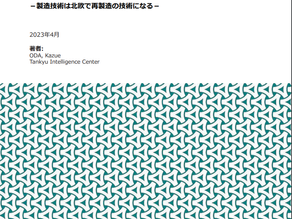
Social Thinktank
Tankyu Intelligence Center
Special Talk

Problem-solving businesses have sprung up one after another.
Today, global issues such as environment and human rights have become conspicuous. It's not all started now, it has been happening for a long time, but it is rapidly becoming a global consensus centered on climate change issues.
I agree. This is especially evident in the fact that businesses aimed at resolving environmental and social problems have been launched one after another recently.
Yes. That in itself is a very good thing, but none of the environmental and social issues are isolated. The situation is intricately intertwined. However, there are many businesses that focus only on solving single issues. For example, focusing too much on decarbonization may neglect resource and food issues.
Sumitani: It's a sign that people who believe they can change society are playing an active role in various areas. It's been a while since the release of "Social Entrepreneurship from Scratch" in 2017, but I feel that more and more people are picking up the book. We are now in an era where people who believe they can change society themselves and take action are definitely playing an active role.
Can't see the cliff of international trends.
I think so. The same is true for relationships that involve trade-offs, and it is also necessary to keep an eye on international trends. Japanese people tend to stay with domestic information only, and even now that translation technology has developed so much, they tend to read articles originally written in Japanese. Then, ahead of the business you are trying to do, Even if there is a “cliff” of international trends, we do not notice it. I have actually seen cases where technological development that was promoted with good intentions was denied by the rules of the world.
Even if it is a small business, it is very important to read and understand international trends, because in the future there will be almost no cases where only the domestic situation is relevant.
Oda: Yes, I know this because I come into contact with official primary information from overseas on a daily basis, but the information published in Japanese media is limited and some of it is quite stale. To begin with, there is a lot of bias on the part of the writers and editors. Translation technology has advanced considerably, so we live in an age where Arabic can be read fluently in Japanese, and the next move can be completely different depending on your attitude of actively seeking out the information you need. I feel that the ability to gather information and insight are two things that have become essential for business literacy.
Even if you tell me to think for myself...
Lately, we have been told to find own answers to questions that don't have answers, while from childhood, we have been putting efforts to meet expectations from the outside by receiving evaluation by giving correct answers. Here is a big learning gap.
It is a common trend these days. The yes or no answer to a project that you are unsure about whether to proceed is not something you can find out by researching, but rather something you have to think about and come up with an answer. You should first decide, "What are the requirements to proceed?" and "How much risk can you tolerate?"like that in order to fix your axis, but you may confuse doing research with finding an answer.
Oda: People who can't break away from the familiar search for the right answer will be confused about where to start. How would you describe the key to this, based on your many years of experience in inquiry-based education?
If I make it simple, I will say it is curiosity.
Through more than 20 years of tankyu education, I have witnessed how people's curiosity, desire to do, and desire to know can dramatically change them. This is not limited to children, but same for adults. Once that engine is ignited, you will be able to think and act proactively.
The way children learn is changing to some extent, but the adult generation seems to have lost sight of the natural way of thinking and finding answers as a result of being familiar with textbook-like "learning with correct answers" for many years.
I agree. In the tankyu learning environment advocated by TIC, each person's curiosity, inquisitiveness, or sense of incongruity is the driving force that enables them to cooperate with those around them, verify hypotheses, and realize their ideas. I hope that more and more leaders will be born who will ignite the passion that is hidden inside them and make it manifest, creating a new era.
Projects
<Projects by almuni will be posted>

Contact Us
Tankyu Intelligence Center
56 Naniwacho, Chuo-ku, Kobe 650-0035
OSINTech Ltd.






